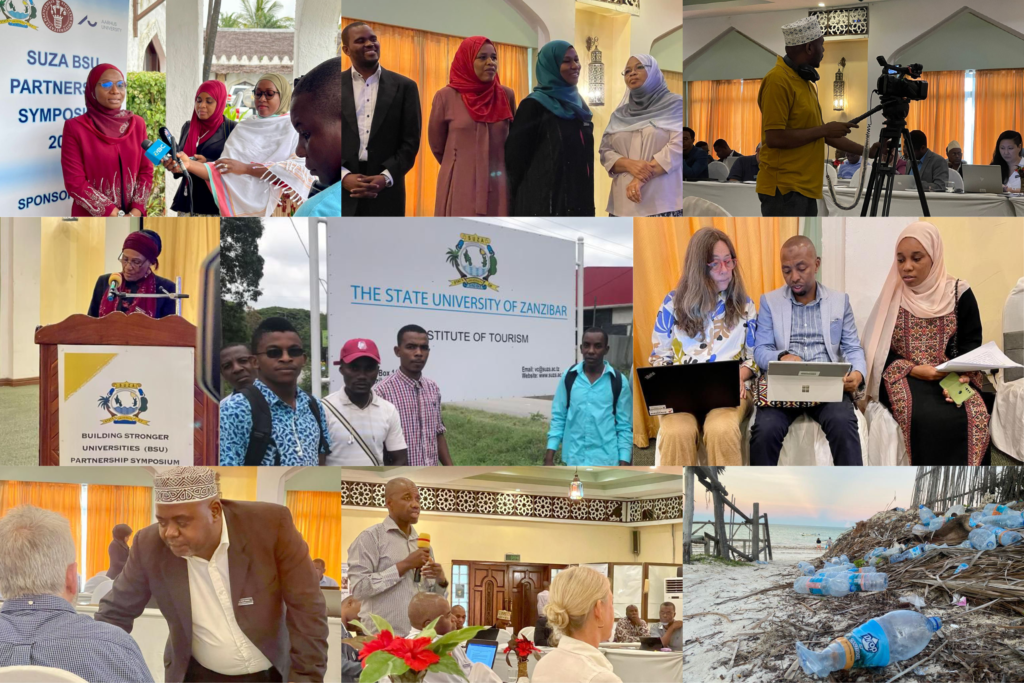Building Stronger Universities has strengthened education and research at the State University of Zanzibar
21-07-23

The first 12 years of the Building Stronger Universities programme at the State University of Zanzibar has ended. The achievements are substantial and commendable, but the best news is that the programme will continue.
By Vibeke Quaade
Zanzibar is one of the places in the world that travelers most love to visit and residents leave only when they have to. Yet, the islands are struggling to deal with two major issues, both related to climate change and the environment. One is the general state of the public health system, and the other the state of the marine habitat.
So, when the Building Stronger Universities Programme started in 2011, it was naturally in these two areas that the University of Copenhagen, and later the University of Aarhus, chose to collaborate with the State University of Zanzibar.
The focus of the Building Stronger Universities programme is to strengthen the university’s educational, research and administrative capacity, and to create societal value by ensuring that the university’s activities are relevant to the needs of the community. A decade later, when the State University of Zanzibar invited stakeholders and partners to a concluding symposium on 5 – 6 June 2023, it was clear that Building Stronger Universities had created substantial results.
Key achievements in education, research and in developing the university’s overall administrative capacity
The partnership has introduced and developed a number of new educational programmes, one of them being a widely acknowledged bachelor degree course in environmental health. It is greatly sought after not only by students from Zanzibar, but also from the Tanzania mainland. A master’s programme on the same topic is in the process of being finalized.
Amongst other achievements, online library access and the online teaching platform Moodle have significantly enhanced the students’ learning experience, while an e-laboratory for education and several physical laboratories are a tremendous support for teaching and research activities. Increased internet accessibility/bandwidth remains a challenge to be overcome, however, as it is needed to facilitate smooth and reliable connections for the increasing number of students who participate in online courses and require related course materials also to be available online.
The Building Stronger Universities collaboration has also played a pivotal role in fostering PhD research at the university. So far, three students have completed their PhDs, and two more are on the way, contributing to a growing roster of PhD graduates in the fields of environmental, and public and marine health. These research endeavours have contributed not only to academic advancement but have also generated valuable knowledge for societal betterment.
Long-term partnerships pay off
Behind these achievements lie the long-term collaboration and dedication of both the State University of Zanzibar’s administrative and academic staff and those representing the consortium of Danish university partners. Moreover, the emphasis on collaboration and engagement with external stakeholders has played a crucial role in the programme’s success.
Building Stronger Universities continues
The partnership’s success in achieving much needed and tangible results has resulted in the State University of Zanzibar being chosen as one of the only three universities included in a new five-year Building Stronger Universities programme. With a total budget of DKK 70 million (USD 10 million), the new programme provides an opportunity for strengthening the university’s longstanding and close collaboration with partners at Gulu University in Uganda, and starting up collaboration and research networks and activities with the new friends at the University of Hargeisa in Somaliland.
Read more about Building Stronger Universities 4
This extended collaboration promises not only learning opportunities and greater synergy among the institutions involved, but hopefully also lasting effects in education, research and societal development. It provides the basis for the State University of Zanzibar to consolidate and further develop the necessary fundamental administrative structures that play a key role in the search for international research collaboration and it provides the framework and basic structures for quality research-based training and learning/teaching that benefit society as a whole.
More about the history of the Building Stronger Universities programme
Watch videos of selected partners and beneficiaries of the Danish-Tanzanian university collaboration at State University of Zanzibar and the Danish counterparts.
“BSU I, II, III has been about strengthening research, curricula and the university administration. We have come a long way together”
Hon. Lela M. Mussa, Zanzibar’s Minister of Education and Vocational Training
“The powerful impact of community engagement is what we need”
Professor Haji Mwevura, Deputy Vice Chancellor, State University of Zanzibar
“ State University of Zanzibar has benefited from BSU’s strong focus on research and educational capacity strenghtening”
Zhanna Tairova, PhD, Marine Scientist, Aarhus University
“The invaluable process of mutual learning is what BSU is about”
Lecturers Fatma Saleh, PhD & Lectorer and Idrissa Hamad, PhD & Lectorer, State University of Zanzibar
“Research knowledge created in the risk of mosquito-borne viral diseases in Zanzibar and the health of sea grasses in tropical waters”
Alumn Nahya Khamis Nassor, BSc in Environmental Health, State University of Zanzibar
“ BSU gave us a Bachelor of Science in Environmental Health”
Said Yunus, Ass. Lecturer, State University of Zanzibar & Anne-Marie Mosbech Jensen, Head, Centre for Online and Blended Learning, University of Copenhagen
“The importance of sharing practices and experiences”
Bjørg Elvekjær, Senior Consultant, Department of Public Health, Global Health Section, University of Copenhagen
“ The strength of the BUS collaboration is the shared interest in environmental health”
